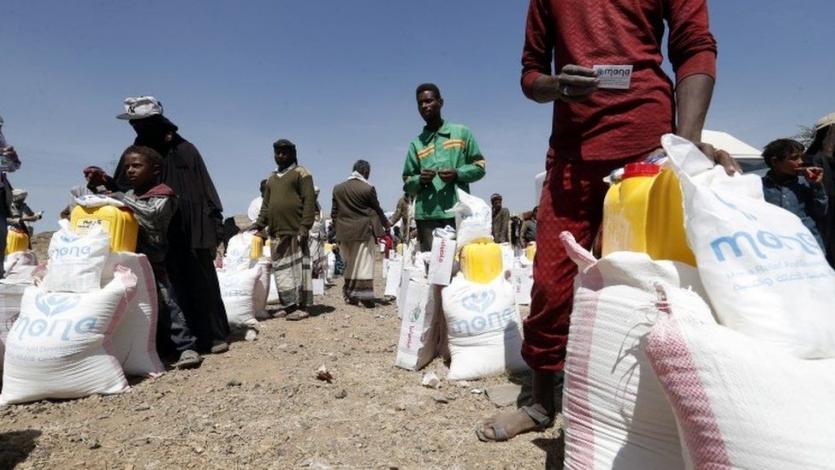Most of Yemen's population needs humanitarian assistance to survive. Photo:EPA
By Patryk Krych | The World Daily | MARCH 2nd 2021
Due to financial pressure spurred by the continually devastating COVID-19 pandemic, the United Kingdom had made some severe cuts to the amount of money it would be pledging to give aid to the suffering people of Yemen.
Yemen has been beset by war for six years now, with the United Nations humanitarian office having put the number of dead at about 233,000 due to what they call ‘indirect causes’ alone. This may refer to such effects as famine, disease and starvation perpetuated by the conflict.
Despite this, the UK government stated that this year it would be pledging “at least” £87m to Yemen and its aid efforts. This is a severe cut when compared to the UK’s pledged aid relief budget last year, down from an entire £164m. Though many have condemned or outright stated their opposition to these cuts to Yemen, which is undergoing what’s been regarded the world’s worst humanitarian crisis.
The war began when Yemen’s capital of Sanaa had been seized by the Houthi rebels. Closely following this seizure, Saudi Arabia, backed by the UK and US, began to intervene in the country to try and reinstate the internationally-recognised government. The majority of recorded casualties have been civilians, and the UK has since been heavily criticised for having sold weapons to Saudi Arabia.
Former foreign secretary Jeremy Hunt expressed he was “deeply disappointed” by the decision on the part of the UK government. He added that the “timing is inexplicable with the UN warning only last week that Yemen faces the worst famine the world has seen for decades.”
The cut had been officially announced on Monday by Minister of State for the Middle East and North Africa James Cleverly, during a virtual donors' conference. Cleverly stressed that “recent global challenges” had “meant a difficult financial context for us all” when addressing the cuts compared to last year’s pledges.
With the conflict having raged and taken many lives since it began in 2014, about two thirds of the entire Yemen population (20m people) have become dependant on aid pledges and donations to keep their populations from starvation. Children are known to be particularly sensitive to the conflict, with a number around 85,000 thought to already died or suffered from starvation.






